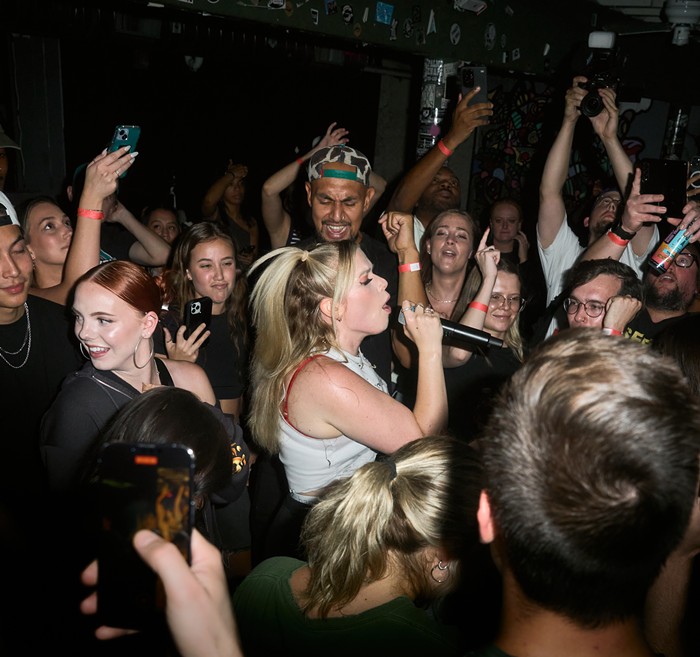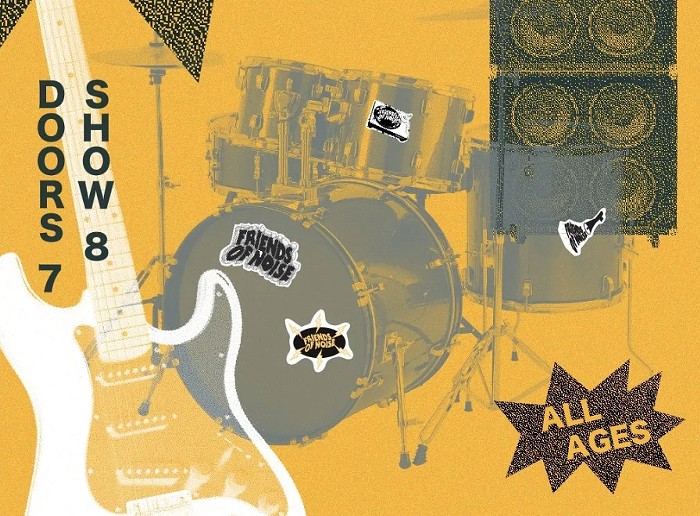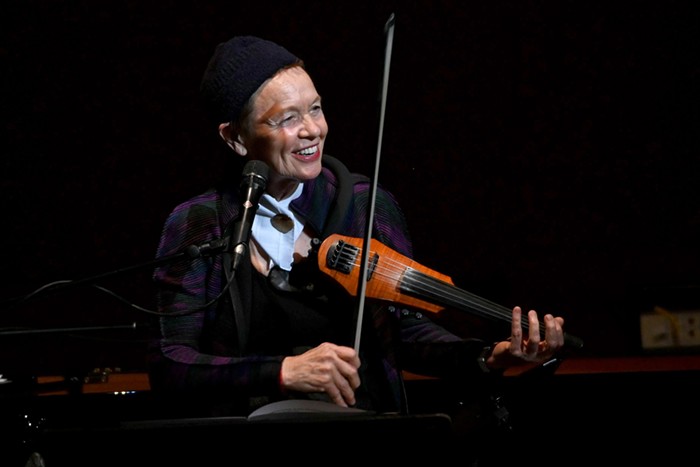Chefs have their kitchens. Artists, their galleries. So why is it so difficult for musicians to find venues that reflect the same level of care and appreciation they devote to their craft? Well, Mississippi Studios has finished a drastic remodel with the sole intention of offering just that: a venue for musicians, by musicians.
But before we get to the new space—complete with fresh paint and creative design, and swollen with grand ideals of how a proper venue should run—there is much to be said of the old Mississippi Studios. Generously gifted with a capacity for 85 patrons (it felt half that size, or a quarter if the crowd was anything but svelte), the venue provided an intimate concert-going experience designed to evoke either a welcoming living room, or a back alley secret meeting (complete with an entrance that involved cutting through the restaurant next door, walking past an Airstream trailer, and searching out the source of the muffled music from within the building). Never tethered to convenience, it took a fair amount of effort to find yourself at Mississippi Studios—but once you arrived, it was difficult to leave. (Seriously, the venue was so small that it was impossible to leave without catching the disapproving eye of the performer.)
As far as the remodel goes, the walls started to fall for Mississippi Studios long before the first hammer was swung. Longtime owner Jim Brunberg envisioned demolishing and rebuilding the space for years—an undertaking he postponed until last summer. In the nearly nine months that have lapsed between doors closing and reopening, Brunberg recruited a familiar face as a business partner: Alicia J. Rose.
The onetime booker at Doug Fir, Rose's departure from her previous employer wasn't controversy free—seeing how both venues will have similar capacities and demand for some of the same talent—but if there was ever an equal to Brunberg's sheer devotion and enthusiasm, it's Rose.
"That's one of the exciting things about this space; we can only put so much into it," she explains, referring to the ambitious redesign. "We build it, we program it, and we can think until the end of days as to what it's going to be like—but it doesn't matter. You put your best intentions in, but it's the people who give the room its heart and its soul."
But before the heart and soul could arrive at the forthcoming grand reopening—on Wednesday, March 4—the onetime church and recording studio was completely dismantled by Brunberg, skilled professionals, and even a few local musicians (including painting from Storm Large and woodwork from Weinland) who will benefit from the sweat they spilled. Raw wooden beams from the first generation of the building sprout up throughout the revitalized space, which now features a front bar area, custom built stage, and a significantly larger showspace (capacity ranges from about 150 seated to 250 standing). But the true appeal of what lies atop the reclaimed wooden staircase is an impressive wrap-around balcony showcasing the original wooden chairs from the room's past life, and—pending Oregon Liquor Control Commission control-plan approval—it will also act as an separate all-ages space for select shows.
Brunberg and Rose's level of dedication is an elaborate attempt to grant an equal level of respect to patrons and performers. Says Rose, "Most venue experiences are things you have to endure. To go to a show, you have to put up with an experience that is kind of sub par. Musicians are what you're there to see."
Brunberg adds, explaining the core philosophy behind the remodel: "We want all the musicians in Portland to have a place to see music that they love—otherwise I think we'd both be pretty bored with it."
While certainly a spectacular facelift, a cosmetic pig lipsticking this is not. The space still maintains its previous charm, and a whole lot of original lumber, yet feels entirely different thanks to a larger design, some bold architectural flair, and the belief there shouldn't be a bad seat in the house. It's either a tribute to the bold vision of what a venue should be, or a form of financial insanity. Probably a little of both.
"We didn't move here from Phoenix to make a go of having a nightclub," explains Rose. "Jim has roots here, I have roots here. He has his vision, I have my vision; they're not the same but they definitely intersect."
Yet despite this bold vision, the new Mississippi Studios isn't a surefire endeavor. There's something to be said for the tremendous risk of swinging open the doors to an undertaking this staggering, while we all sit neck deep in the trenches of a global economic meltdown. Plus, what about Portland's sporadic history of successful music venues in Northeast? Will longtime followers of the venue's living room be alarmed by a larger room? Is it still too small for national acts? These comments have not fallen on deaf ears.
"Everybody has told me, 'You're crazy for doing it here,'" recalls Brunberg, with a nervous laugh that reflects the enormity of this task. And while he admits "Maybe we can, or maybe we'll fail," Rose adamantly opposes this line of thought.
"I disagree," she says, "but you know, this is why Jim and I found each other. We have similar passion and a similar vision for why this makes sense."
Mississippi Studios' grand reopening celebration takes place on Wednesday, March 4, at 3939 N Mississippi (7 pm to midnight, free). Bands include Weinland, Rebecca Gates, Pete Krebs, the Dimes, James Low, Chris Robley, Stephanie Schneiderman, Lewi Longmire, and Portland Cello Project.



















